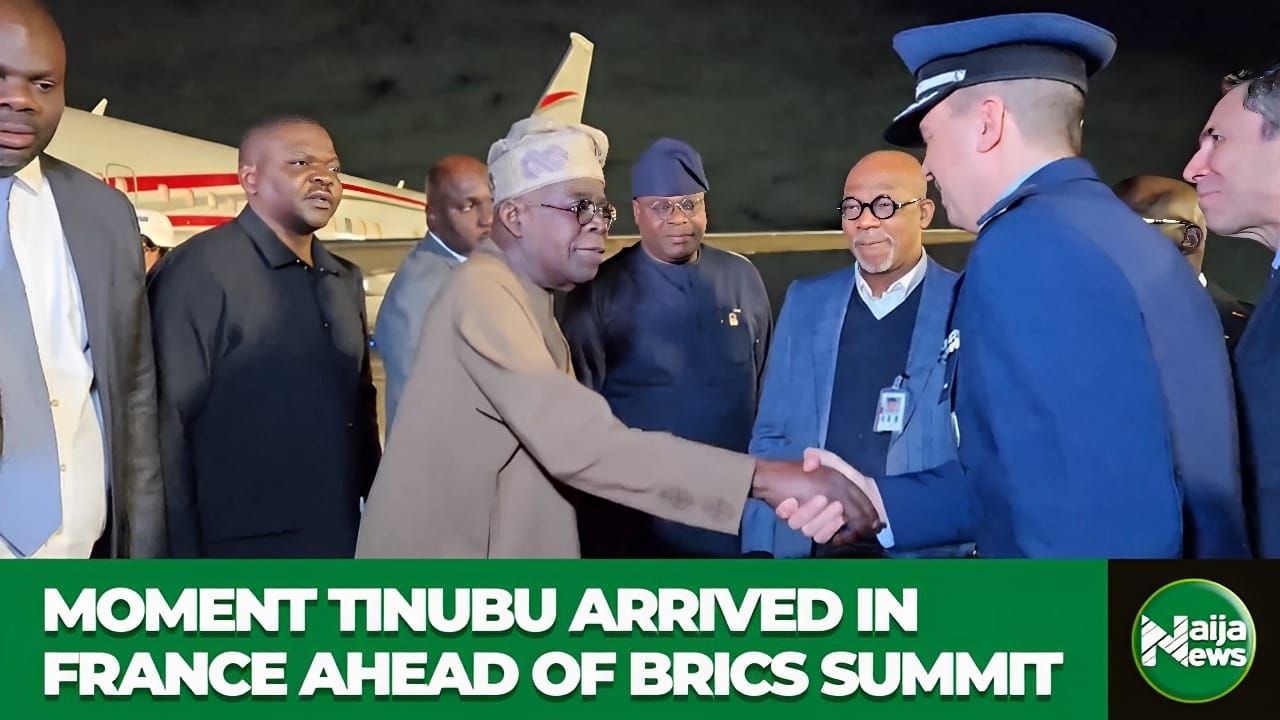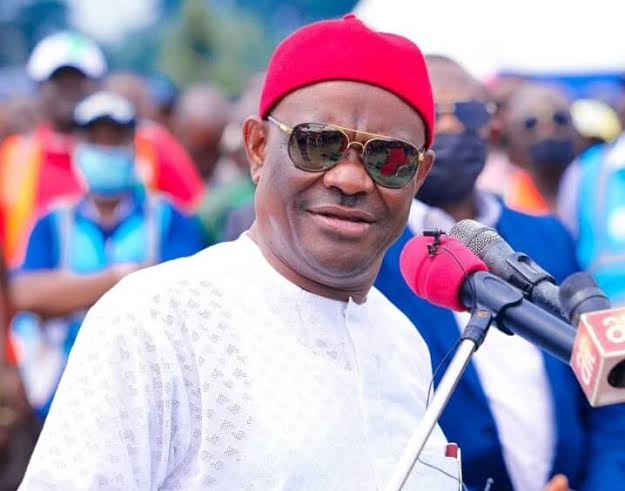
"With Smiles and Salutes: President Tinubu Touches Down in Brazil for Historic BRICS Summit Appearance"

The Brazilian air hung thick with diplomatic weight and cultural energy as President Bola Ahmed Tinubu arrived in Rio de Janeiro ahead of the highly anticipated 17th BRICS Summit. With the rhythmic sounds of samba in the background and the warm embrace of international protocol, Nigeria’s commander-in-chief descended from his aircraft into a new chapter of global diplomacy, one that promises to mark a turning point in the country’s economic and political trajectory.
The president’s arrival, captured in a video that quickly spread across social media platforms and news outlets, was met with ceremonial honours, beaming smiles, and a flurry of activity at the Rio de Janeiro-Galeão International Airport. Security operatives, members of the Nigerian delegation, Brazilian officials, and international media lined the airstrip, creating a moment that was equal parts grand spectacle and high-level political maneuvering.
Clad in his signature agbada, with his familiar traditional cap proudly perched atop his head, President Tinubu exuded a quiet confidence as he stepped into the limelight. He acknowledged the waiting dignitaries with polite nods and firm handshakes, his presence underscoring Nigeria’s emerging assertiveness on the global stage. His arrival ahead of the summit was not just symbolic, but strategic—placing the West African giant firmly in the circle of nations determined to redefine global economic power structures.
The 17th BRICS Summit, gathering the nations of Brazil, Russia, India, China, and South Africa, has in recent years become a magnet for countries seeking to pivot away from traditional Western-dominated economic forums. President Tinubu’s presence is notable not only because Nigeria is not yet a formal member of the BRICS bloc but because his attendance signals an intention to align the nation with alternative development models that prioritize mutual cooperation, infrastructure growth, and economic multipolarity.
As he made his way from the tarmac to his convoy, flanked by aides and high-ranking officials, observers couldn't help but speculate on the nature of the discussions that lie ahead. Sources within the presidency revealed that Tinubu will be participating in key breakout sessions with several heads of state, addressing issues ranging from trade imbalances and energy partnerships to digital innovation and debt restructuring. With Nigeria battling currency devaluation, inflation, and youth unemployment back home, the president’s agenda is reportedly packed with negotiations designed to attract foreign direct investment and secure infrastructural development deals.
Tinubu’s visit to Brazil is not just about attending the summit; it is a carefully calculated diplomatic tour aimed at reinforcing Nigeria’s image as a regional powerhouse and potential BRICS member. In recent months, there has been rising speculation about the possible expansion of the BRICS bloc to include other major developing nations. Nigeria, with its vast population, natural resources, and regional influence, is considered a strong candidate. President Tinubu’s presence may well be a soft audition for the country’s admission into the group.
Crowds of Nigerian expatriates and Afro-Brazilian communities were seen waving miniature green-and-white flags, some even singing in Yoruba and Igbo as the presidential convoy drove through the city. Many of them held placards bearing messages of support and hope, hailing Tinubu as the leader who could elevate Nigeria's global standing through strategic diplomacy. For these diaspora communities, the visit wasn’t just political—it was deeply emotional, connecting shared African roots with aspirations for a stronger, more respected homeland.
As expected, the security around the Nigerian leader was tight. Brazilian police and private security contractors worked alongside Nigerian DSS operatives to ensure smooth logistics and complete safety throughout the president’s movements. The itinerary remains largely classified, but insiders say Tinubu is expected to attend a series of bilateral meetings with Presidents Lula da Silva of Brazil, Xi Jinping of China, and Cyril Ramaphosa of South Africa. These engagements are viewed as opportunities to negotiate key partnerships in sectors such as agriculture, green energy, education, and fintech.
Analysts across Nigerian and global media have described Tinubu’s attendance as a diplomatic masterstroke. With Nigeria facing numerous economic challenges, engagement with BRICS could provide an alternative route to capital, trade alliances, and cooperative frameworks that bypass the usual IMF and World Bank bottlenecks. The summit is also expected to unveil a BRICS-led development bank initiative, and Nigeria’s involvement in preliminary talks could lead to eventual inclusion in its lending portfolio.
Social media, as always, buzzed with diverse reactions. Supporters praised the president for putting Nigeria on the map once more, while critics questioned the potential outcomes of such international trips, urging the government to ensure that the benefits translate to improvements in the lives of ordinary Nigerians. Still, the prevailing sentiment was one of cautious optimism, buoyed by the symbolic strength of the visuals—Nigeria’s flag flying alongside those of powerful emerging nations.
In Rio, the air is thick with anticipation. As lights illuminate the city’s iconic Christ the Redeemer statue and samba beats echo through the night, the international community watches closely to see what President Tinubu’s next move will be. Will this trip serve as a launching pad for Nigeria’s deeper integration into the global economic system through alternative partnerships? Will it mark the start of a new chapter for Africa’s most populous country?
One thing is clear: President Bola Tinubu’s arrival in Brazil is far more than a ceremonial trip. It is a strategic play on the global chessboard, aimed at repositioning Nigeria as a serious actor in a rapidly changing world order. And as the cameras clicked and flags waved, it became evident that a new diplomatic story was beginning to unfold—one where Nigeria is not merely a spectator, but a determined participant.


